Setting a Goal for yourself
Before going for setting goals firstly we need to understand what a goal is.
For me, goals represent desired results, outcomes or achievements that I envision for myself and work towards. Setting a goal for yourself provides direction and gives your efforts a sense of aim or purpose.
When you take the time to establish goals for yourself, it clarifies what you want to accomplish and enables you to chart a course toward manifesting your vision. The goals you set for yourself reflect your personal aspirations and priorities.
Having clearly defined goals that you crafted and feel connected to makes it easier to carry out the steps required to turn those goals into realities. Setting a goal for yourself allows you to create your own roadmap and find fulfillment in working towards your desired future.
Setting a goal for yourself is important for both personal and professional growth. For setting a goal for yourself, first of all, it’s important to understand what the goal is and how we can achieve it within a certain period of time.
Goal is what you desire the most, a thing that we want the most in our life or our destination. In this blog, I’ll share my thoughts and step by step process for achieving goals.
By following that process or steps one can achieve his or her desired goals within a certain period of time.
Table of Contents
- Developing Self-Awareness for setting a goal for yourself
- Finding Our Passion and Core Values
- Examining the Strengths and Failures of the Previous Year
- Imagining Our Perfect Future Self
- Setting a meaningful S.M.A.R.T Goal for Key Life Areas
- Professional Goals ( Career and Business Goals)
- Financial Goals
- Physical Goals (Health, Fitness and Wellness Goals)
- Personal Growth and Development Goals
- Achieving Goals with Focus, Discipline, and Tracking
- Keeping Clear on Goals
- Blocking Distractions
- Developing disciplined routines
- Conclusion
Developing Self-Awareness for setting a goal for yourself
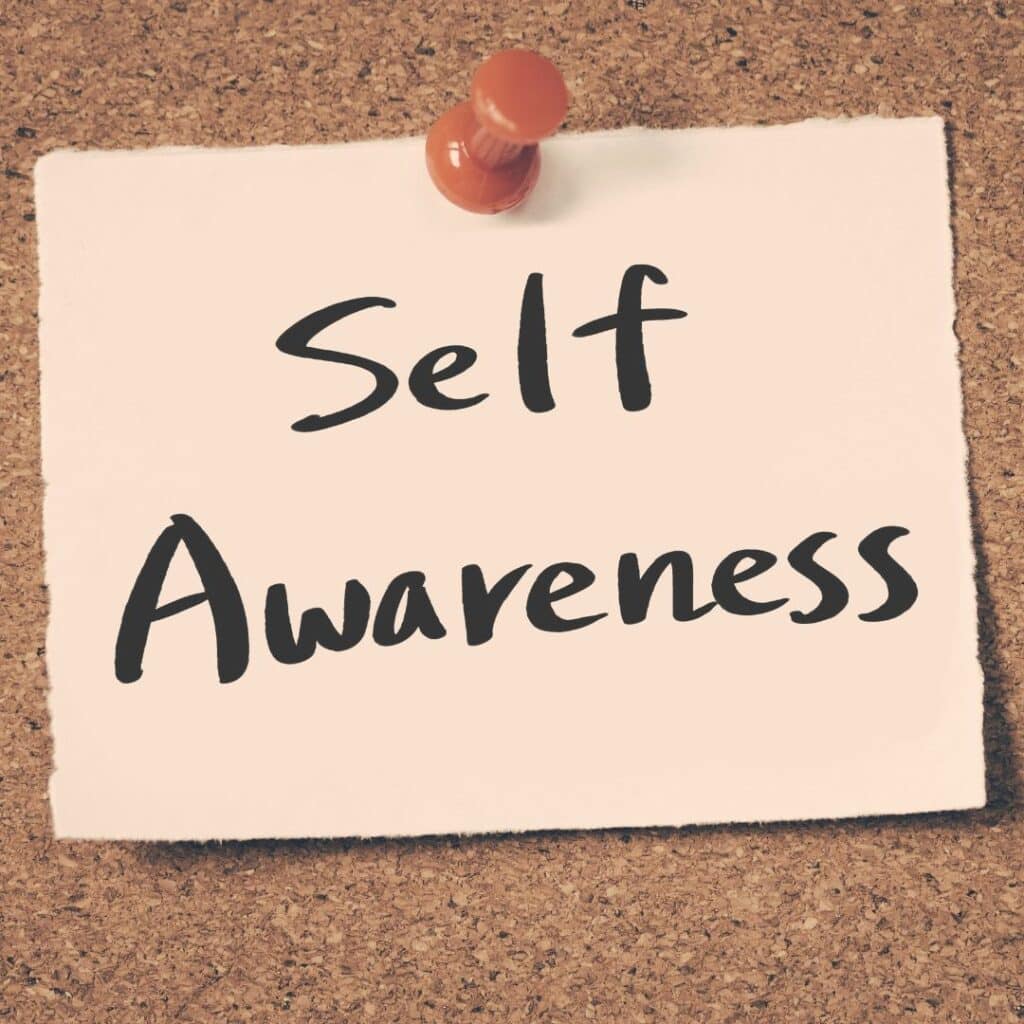
Setting a goal for yourself is not so easy. Firstly, it is too important to understand what I should really want in my life and how much potential I should have to achieve it .
Before rushing for the goals and wasting time in wrong directions for achieving them, it is important to develop self-awareness about what I want in my life or what is the destination where I want to go.
Therefore, I spend more time in self-awareness about the goal and also evaluate whether there is a future for me with that goal or not. By developing self-awareness, it gives me clarity and the proper idea of my desired goal.
Finding Our Passion and Core Values

After developing self-awareness, the next step is to understand our passions, interests and the core values. It is also an important part for setting a goal for yourself.
Therefore, after self-awareness, I carefully monitor my interests, beliefs and core values that helps in finalizing the goals that I want to achieve.
Examining the Strengths and Failures of the Previous Year

The next step in defining a goal for yourself is to review one’s strengths and failures from the previous year.
By doing so, one should have a clear understanding of what is the best way for me to move forward and become successful in the future by taking that path to achieve the goal.
Looking back provides clarity on our working styles, learning approaches, and motivation triggers based on what fueled our past wins. Evaluating setbacks shows potential planning or execution pitfalls to be aware of.
This self-awareness allows us to set goals that play to our natural abilities while shoring up gaps. Building on proven strengths raises confidence. Being mindful of areas for improvement focuses our efforts. Reviewing the past provides insight on optimal goal scoping, pacing, and strategies.
Imagining Our Perfect Future Self

To imagine our perfect and dreamed future self to come true, for example, our plans like health, relationships, stability, and so on, it is important to set targets and the best process to achieve them.
Setting a goal for yourself and envisioning our ideal future self allows us to outline measurable markers of success. It helps us set specific, tangible goals that align with our bigger vision. With our future self in mind, one can craft customized plans, timelines, and strategies. Defining our desired destination clarifies the steps to get there.
By following this process, one can easily obtain the targets and achieve the goals of oneself.
Setting a meaningful S.M.A.R.T Goal for Key Life Areas
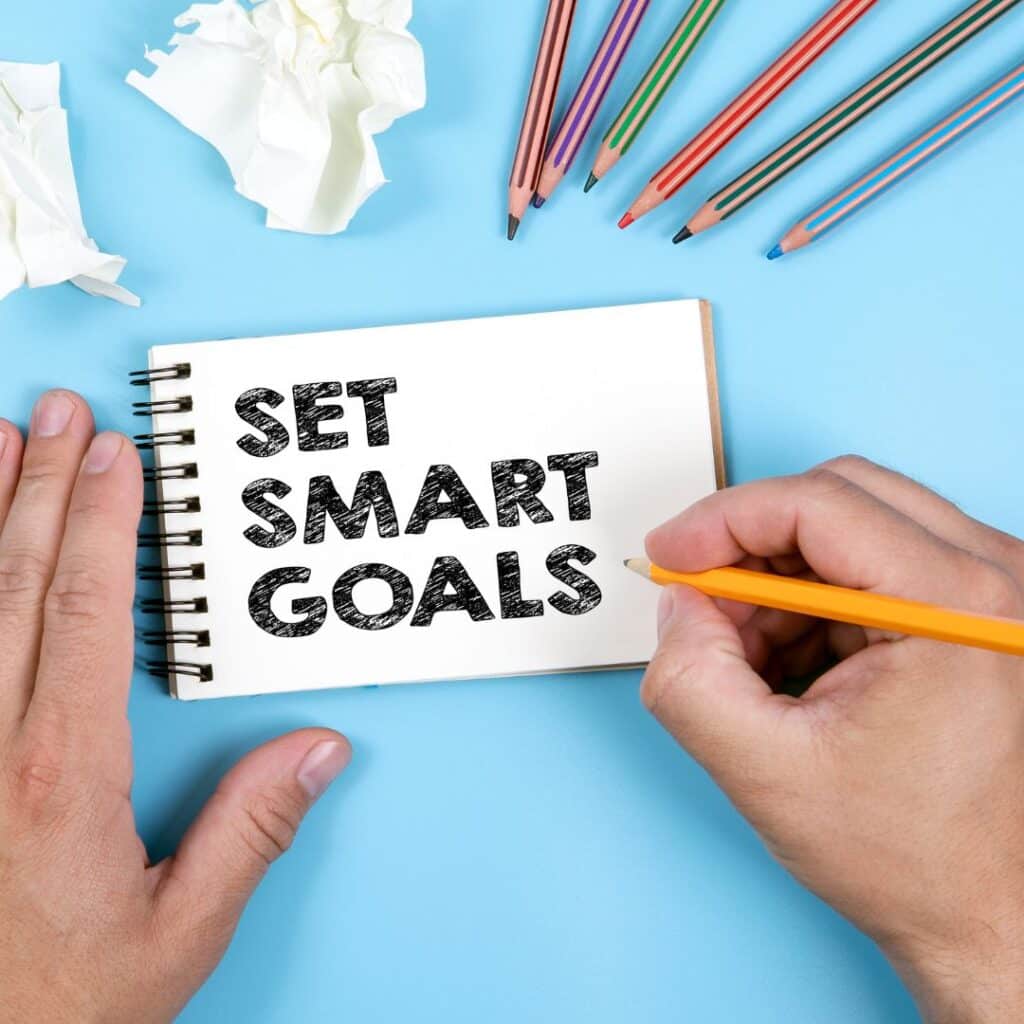
Equipped with self-awareness and knowledge, I define 1-3 year S.M.A.R.T. goals in core areas like career, finance, and personal growth based on my short and long-term priorities and desires.
Setting a meaningful goal is also an important factor for setting a goal for yourself.
Professional Goals ( Career and Business Goals)

To achieve the goals I set for myself, I need to make a detailed plan like a roadmap, and follow it daily with dedication.
For example, if I set my mind on becoming a Software Engineer or an IAS Officer, I’ll write down that goal and paste it on my wall with a target achievement date. Then I set professional objectives focused on skills development, getting qualified, and working hard to reach the goal by following the roadmap I created on a daily or monthly basis.
The key is turning the goal I set for myself into a clear action plan and executing it consistently while keeping the end target clearly in sight. Setting a goal for yourself is useless without breaking it down into achievable steps and diligently working through them toward the desired outcome.
Financial Goals

To achieve the desired goals I set for myself, I’ll also establish clear financial goals.
For example, I’ll start saving money, because without saving, proper planning of where to invest, or defined financial goals, it is not possible to achieve anything in life.
When setting a goal for yourself, it’s crucial to outline specific money-related milestones that will enable that goal to become a reality. Defining and tracking financial goals is key to reaching the desired personal and professional goals.
Physical Goals (Health, Fitness and Wellness Goals)

In setting a goal for yourself, it is also important to set a physical goal. Because without being physically fit or able to do too much hard work and invest time in achieving the goals, it is impossible for someone to achieve something.
Personal Growth and Development Goals

When setting a goal for yourself related to personal growth, it’s important to dig deep and understand what truly motivates you and aligns with your convictions.
Based on my interests, I’ll start doing self-improvement by setting goals for myself, like learning, skills development, spiritual development, and so on.
Whether it is reading, a hobby, singing, dancing, or anything depending on our interest I’ll do my best to achieve the goal.
Achieving Goals with Focus, Discipline, and Tracking

Setting a goal for yourself is the starting point, but you have to be willing to put in the effort day by day to turn those goals into reality.
Once I set goals for myself, it is very important to give my best effort to achieve them. I’ll work hard, maintain self-discipline, and consistently track progress toward the goals I’ve set to achieve them within my targeted time.
Keeping Clear on Goals
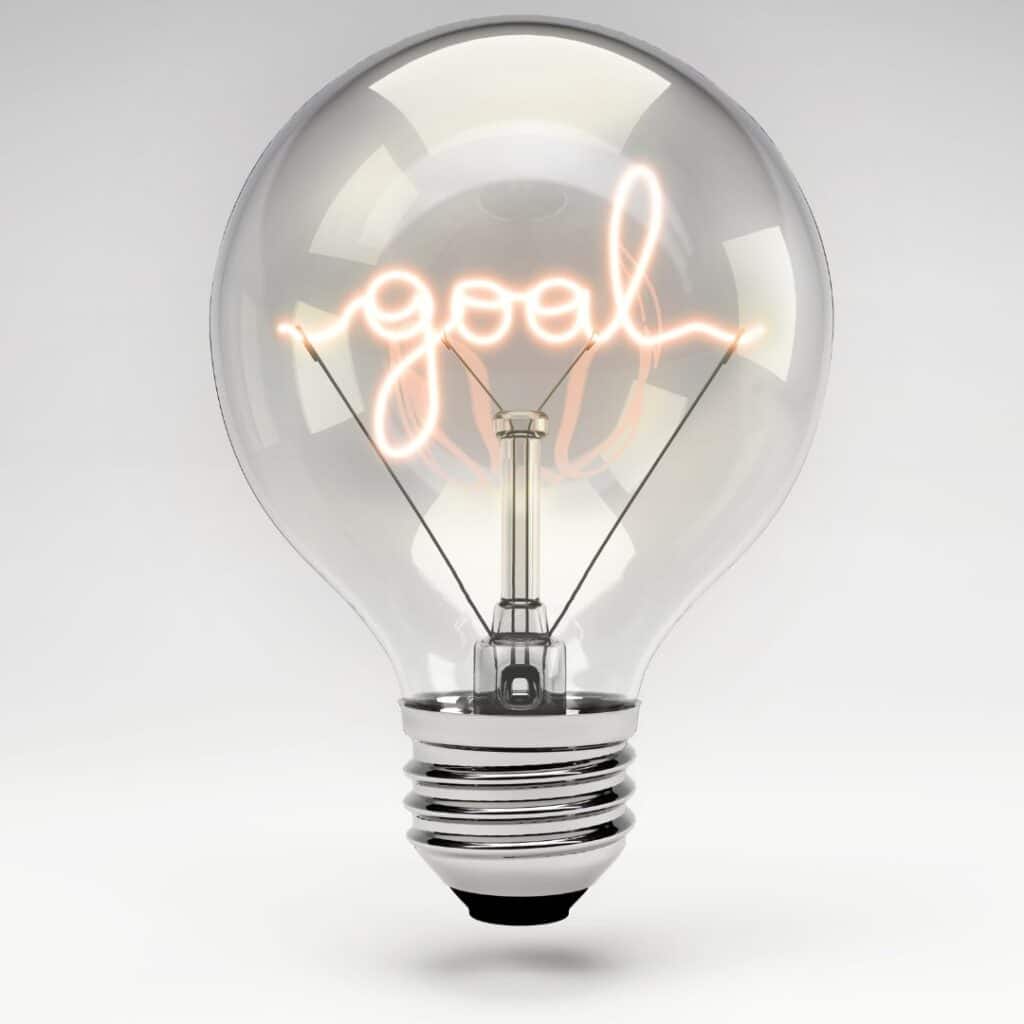
Keeping clear on the goals you set for yourself is crucial for maintaining focus and motivation. Regularly revisiting the goals you set for yourself helps reinforce their importance and provides direction for daily tasks and priorities.
Whether you put reminders in your workspace or re-read your goal list daily, periodically refocusing on the goals you set for yourself gives valuable clarity. This clarity keeps you aligned to your priorities when faced with distractions.
I refer back to the goals I set for myself often to reinforce clarity and give direction for daily actions and priorities. Regularly revisiting the goals I set for myself is vital for staying on track toward achieving them.
Blocking Distractions
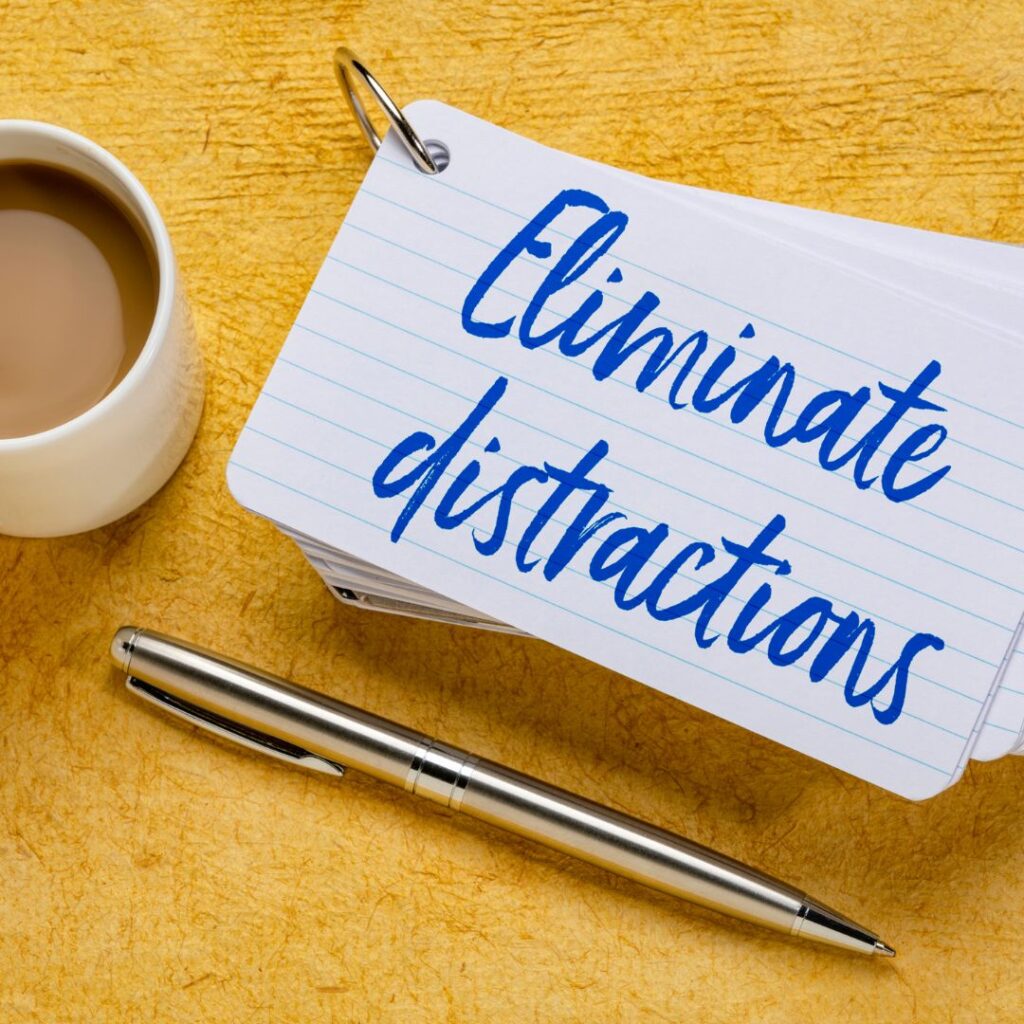
I’ll eliminate all the distractions that are coming in my way to achieve my desired goals either they are digital, environmental, or lack of self-discipline.
Developing disciplined routines
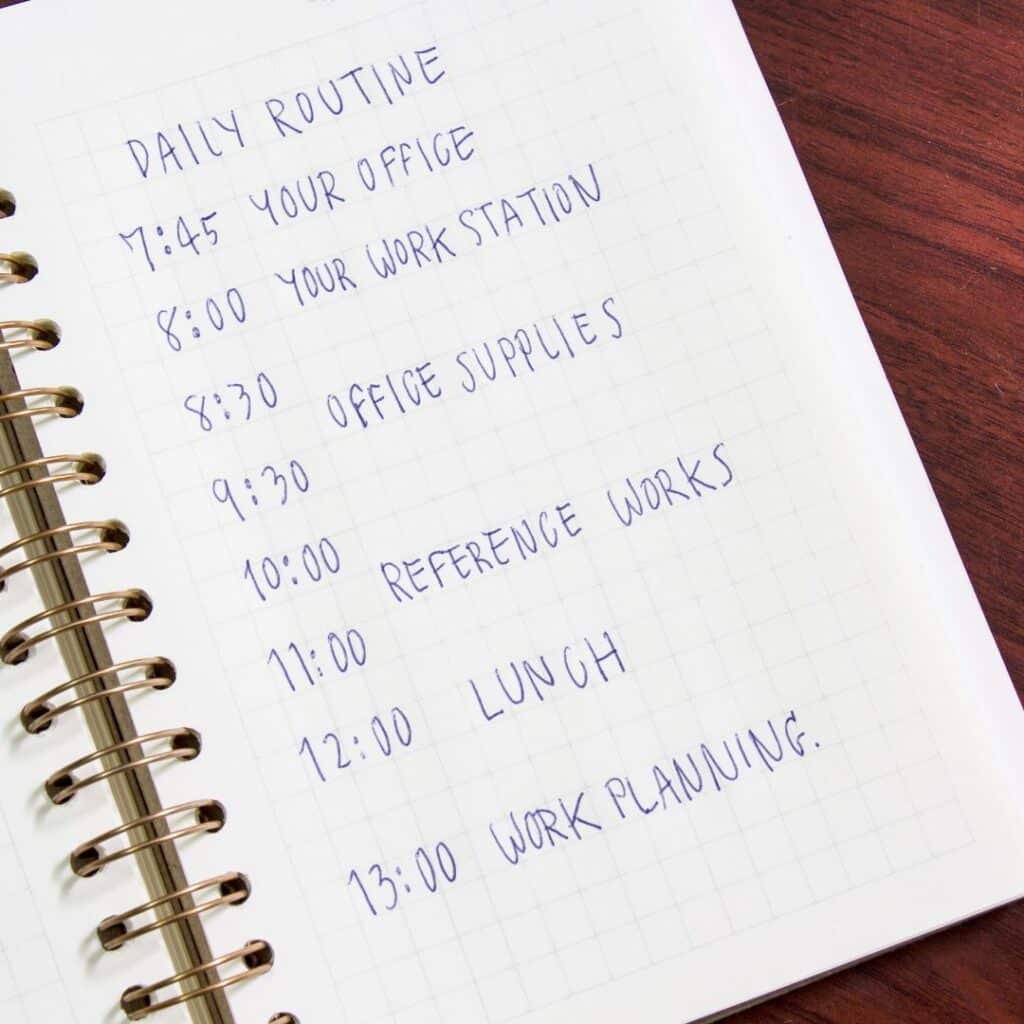
Self-discipline is what takes me from setting a goal for myself to achieving it. Setting a goal for yourself is easy, but sticking to disciplined routines to accomplish that goal is the hard part.
For achieving anything, whether professional or personal goals I set for myself, self-discipline is the most important factor.
Without self-discipline, nothing can be achieved. Therefore, I have to develop a proper routine, which will help me to achieve the desired goal within time.
Conclusion
It’s a cruel world, a rat race to become successful by any means necessary, a person without a destination or goal mustn’t reach anywhere. We all have the potential to become successful and achieve our goals if we follow a process.
In order to become successful and achieve our goals, we need to finalize our plans and destination and give our best to achieve it. If we have a destination, and a complete roadmap of it, like how, when or where to work for it, we’ll achieve the goal in time.
I wish you the very best ! So, go and become successful !
Archna Rana

